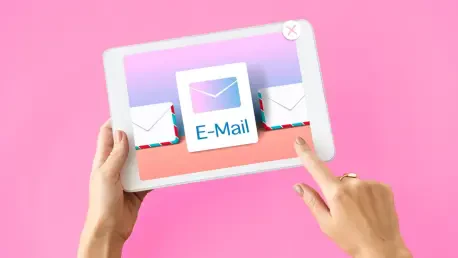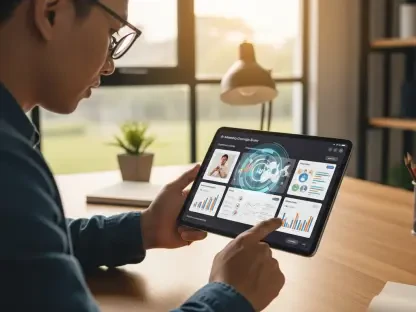In an era defined by swiftly evolving digital landscapes, traditional marketing methods demand innovative transformations where email emerges as a multifaceted component within a comprehensive marketing strategy. Moving beyond mere promotional messages aimed at instant sales generation, email channels are redefining their roles by providing profound insights into consumer behaviors, serving as strategic platforms for testing marketing approaches, and enhancing the efficacy of broader marketing initiatives. As brands seek competitive edges and robust customer connections, understanding and leveraging the expansive potential of email becomes crucial.
Evolving Perceptions of Email in Marketing
Challenging Conventional Misconceptions
Historically, email has been perceived predominantly as an immediate sales tool, tapping into incremental growth by capitalizing on its straightforward application and alignment with traditional methodologies. Although understandable, these perspectives limit email’s potential, often leading to an undervaluation of its comprehensive abilities within marketing strategies. Profound misconceptions stemming from narrowly defined practices underlie these outdated perceptions. Brand marketers may find themselves entrenched in rapid sales-driving cycles, missing opportunities where email serves as a foundation for strategic insights and deeper consumer engagement. As marketing paradigms shift towards adaptive, insight-driven strategies, reimagining email’s scope is not merely a choice but a necessity for those seeking lasting impact.
Repositioning Email as a Strategic Cornerstone
Within corporate hierarchies, decision-makers frequently hold preconceived notions about email, leading to inadequate resource allocation or budgeting, thus stifling its strategic potential. Recognizing its capacity to be more than an auxiliary tool when immediate sales targets are unmet requires a transformation in its positioning within broader marketing ecosystems. Viewing email as an inherent component of strategic frameworks involves comprehending its versatility in fostering consumer connections directly through permission-based models, which have been pioneering long before other digital push channels evolved. Emails permit seamless initiation of conversations with clientele, providing unencumbered avenues for brands to strengthen ties with their audience without waiting for online searches or social surfing.
Comprehensive Training and Strategic Understanding
Establishing Email’s Strategic Engine Potential
A shift in professional education towards comprehensive training that emphasizes email’s strategic significance beyond simple revenue generation is essential in redefining its role. This transformation mandates equipping marketers with in-depth knowledge to leverage its capabilities effectively, facilitating an understanding of email as a pivotal strategic engine rather than focusing exclusively on tactical sales-driving uses. Invoking comprehensive educational paradigms can position email as a channel integral to acquiring richer audience insights, commitment building, and cultivating robust customer relationships. Marketers should recognize email’s untapped capabilities beyond immediate financial gains, harnessing it for loyalty enhancement and sustained customer engagement.
A Framework for Educating Marketers
Advancing professional training requires embedding a structured curriculum that accentuates email’s strategic importance. By integrating tailored training sessions, brands can usher marketers toward fully realizing email’s potential, offering a deep dive into its multifaceted usage. Professional development programs should strive for the holistic education of marketers, educating them on myriad applications enabling nurturing of long-term customer journeys. Embedding frameworks that explore strategic potential provides marketers with the ability to discern distinct behavioral markers, offering fertile grounds for fostering strong and lasting customer connections across channels. This reoriented focus ensures emails evolve into pivotal conversion ecosystems, assisting marketers in transcending boundaries of traditional implementations.
Strategic Applications and Consumer Insights
Behavioral Insights and Testing Paradigms
Email’s intrinsic capability to serve as a behavioral testing platform transforms its role as a mere communication tool into one that explores consumer motivations deeply. Marketers can capitalize on methodologies such as classic A/B testing, which unveils customer preferences without necessitating complex multivariate approaches. Insights derived from consumer interactions and responses to diverse email content provide invaluable data employed to refine strategies across multiple channels. Analyzing behavioral insights creates pathways that broaden and refine the experiences offered, establishing email as an essential component for strategic behavioral exploration. Data garnered from behavioral studies informs marketing domains by spotlighting nuanced preferences and underscoring strategic communication imperative for brand engagement.
Diagnostic Tools Exploiting Content Efficiency
Email acts as a diagnostic tool discerning consumer content interests, wherein marketers gain insights into what triggers actions or conversely proves ineffective. Through enriched data evaluation, detailing elements such as sender names, subject line efficacy, and content length, marketers unravel factors resonating with target audiences. Strategic optimizations across multichannel touchpoints become feasible by extracting actionable metrics guiding performance enhancements. Employing detailed diagnostic evaluations ensures marketers engage effectively through tailored content that appeals directly to consumer inclinations. This strategic intelligence positions email as a crucial diagnostic resource integral for brands seeking targeted engagement that resonates with customer demands and enhances brand loyalty.
Building Long-Term Customer Relationships
Nurturing Loyalty with Personalization Strategies
Email’s potential extends beyond rapid sales generation, evolving through integration of personalization with automation and lifecycle-centric messaging optimized for comprehensive customer journeys. These approaches transform emails into holistic conversion ecosystems, spanning acquisition, engagement, conversion, retention, and reactivation. Strategic personalization, amalgamated with lifecycle-focused automation, allows email to reposition itself within the customer’s journey, offering deeply personalized engagement experiences that foster robust brand loyalty. By harmonizing personalized messaging with strategic email campaigns, brands cultivate long-term connections, enhancing retention through value-driven exchanges that transcend immediate promotional content.
Leveraging the Advantage of Retention Strategies
One inherent advantage embedded in email’s application is its cost-effective contribution toward sustaining customer retention strategies compared to acquisition endeavors. Email’s role transcends impulsive sales approaches, cultivating enriched connections through substantive content personalized to suit an individual’s journey. Employing personalized content bridges crucial touchpoints, sustaining dialogues across extensive periods, engendering sustained loyalty rather than transient interactions. Brands harnessing email’s comprehensive reservoir for personalized marketing evolve beyond ephemeral promotions to forge long-standing relationships, providing distinctive experiences throughout an individual’s brand journey. In focusing on retention, email enriches customer relations, offering strategic benefits integral to fostering durable brand loyalty.
A Call for Reassessment and Strategic Exploration
In today’s rapidly changing digital environment, traditional marketing strategies must undergo innovative transformations, and email stands out as a critical component of such change. Emails now do much more than just push promotional messages for immediate sales; they have evolved into powerful tools that offer detailed insights into consumer behavior. These insights enable marketers to test different strategies effectively and improve the overall results of broader marketing campaigns. As companies aim to outperform competitors and build strong relationships with customers, mastering the use of email and understanding its vast possibilities becomes a vital part of their strategic approach. With its ability to gather consumer data, email channels can pinpoint preferences and trends, offering companies invaluable data to refine their tactics. Well-executed email marketing can not only enhance engagement but also foster customer loyalty, ensuring a long-term competitive advantage in the marketplace.









